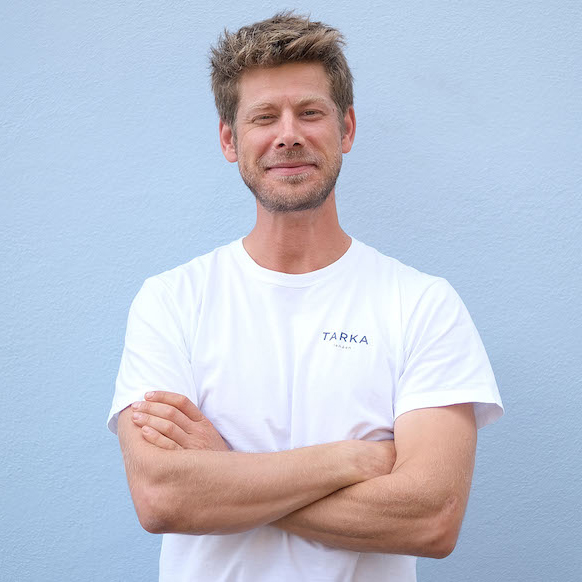Rufus is one of the founders of the hugely successful children’s exercise classes that have been taking west London by storm. Rufus is a former household cavalry officer who created these classes for one and half to eight year olds, with the desire to ‘maximise development while growing their concentration, co-ordination and communication skills.’ TARKA offer termly classes that last 45 minutest to 1 hour and range from £20 – £26 per session. TARKA also offer holiday camps, birthday entertainment and private sessions

What sparked the idea for Tarka London?
I had just left the Army and suddenly wasn’t doing as much exercise as I had always done since the age of 7 at school / the Army and I remember thinking ‘why aren’t I as happy as before?’ and it was because I wasn’t doing any physical exercise. I have always known that exercise is good for you, but never really realised it so concretely until I was on the other side of it. Exercise is so key to happiness, your mental state, your physical well-being, your outlook on life etc etc that I then wanted to imbue that into young children who are increasingly sedentary and living lives in front of screens. And rather than just doing ‘exercise’, why not make it educational and try and teach children through movement whilst their brains are so much more receptive to learn. I gained a huge amount of belief in what I was thinking from reading and studying the way a lot of Scandinavia countries educate young children and how they are leading the way in early years education. I would also like to add that early years teachers are 95% female and this didn’t seem right to me. Young children need attention and love from men too which is why over 60% of the staff at TARKA are men. I’m all part of the #metoo movement!! I’m very proud that TARKA must be the only educational institution to have such a balance of male and female instructors.
What skills are your classes aimed towards developing in children?
The core element of TARKA will always be about movement, making children subliminally love exercise because they don’t view it as just exercise but as a fun game. If you were to watch a class, it may look like a bunch of children charging around but when you look closer, you’ll see that TARKA is working on their balance, fine and gross motor skills, teamwork, understanding of others, confidence and general core strength. A lot of these elements I’ve just mentioned are key values in the Army, which again I am so grateful to have as part of my DNA for life and something which I believe are very good values to live by and for any human to have.
What changes do you see in children over a term/year of classes?
A love for life. Confidence. Happiness. Physical development. Teamwork.
Your classes go up to six years old. What do you recommend parents do to maintain the Tarka ethos once their children leave? Have you got any future plans to extend your age range?
So much of TARKA’s success is down to energy and enthusiasm. Children can’t get enough attention and if you give it to them, they’ll hero worship you and want to do well. Maybe I’m making it sound easy, but so far it seems to work for us!
And with regards to doing classes for older children, we do have classes already for children up to 8 years old and send plenty of instructors around London to do private classes and mentoring for children up to the age of 16.
Many of our readers leave outside of your Notting Hill and Chelsea catchment area. Can North London and South of the river look forward to accessing your classes?
I hope! We’ve been terribly careful to not loose quality by being greedy and expanding too quickly.
If you had five minutes with the Minister for Education what advice would you give him?
The sheer importance of early years education. And the importance of giving children role models to look up to. You wouldn’t go to a hairdressers if the hairdresser himself had a bad haircut! Nor would I want to send my child to a school where the teachers were lazy, overweight and didn’t love what they do.


